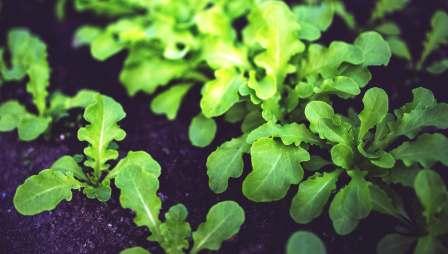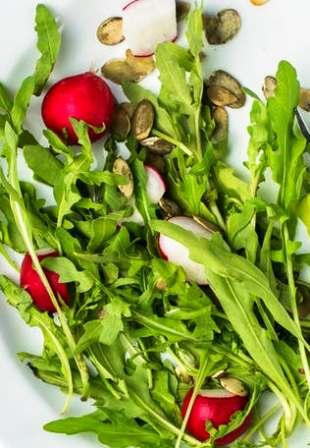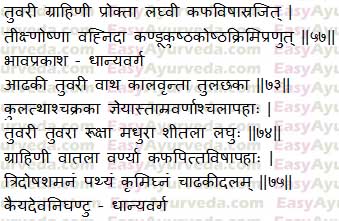Arugula (Eruca sativa) Uses, Remedies, Research

By Dr Renita D’Souza
Botanical Name – Eruca sativa
Synonyms – Eruca vesicaria, Brassica eruca L, Brassica erucoides
Family – Brassicaceae
Table of Contents
Introduction
Arugula (tuvari) commonly known as Jarjeer is a medicinal plant used traditionally as a remedy in skin diseases, digestive problems, kidney diseases, cardiac disease etc. Young arugula is used as salad green. They are rich in vitamin C and Potassium. The plant is known to stimulate hair growth and used in fungal and bacterial infection. Traditionally it is consumed as aphrodisiac food.

Vernacular Names
Sanskrit Name – Tuvari
English Name – Arugula, Rocket, Garden rocket
Hindi Name – Tori, tira, Lahi, Tara mira, Seoha, Tivura,
Bengali Name – Setasarisha
Punjabi Name – Asu, Tara
Malayalam Name – Rucola
Qualities, Uses, Remedies
Medicinal Qualities of Arugula
Grahi – absorbent in nature
Laghu – light to digest
Potency (virya) – hot
Tikshna – penetrate the tissues quickly
Vahnida – increases digestive fire
Therapeutic Uses of Tuvari (arugula)
Kandu – itching
Kushta – skin diseases
Koshta krimi – intestinal worm infestation
Visha – poisoning, toxic conditions
Blood related diseases
Effect on Tridoshas
Balances Kapha dosha

Traditional Remedies
- Intake of seed oil mixed with sugar is useful to treat dysentery.
- Arugula plant lotion applied to scalp, stimulates hair growth.

Interaction with medicines, supplements
Can this be used while taking Homeopathic medicine?
Yes. This product does not react with homeopathic medicine.
Can
this medicine be continued while taking supplements like multivitamin tablets,
Omega 3 fatty acids etc?
Yes. Generally, this product goes well with most
of the dietary supplements. However, if you are taking more than one product
per day, please consult your doctor for an opinion.
With western
medicines
Seek your
doctor’s advice if you are taking this product along with other western
(allopathic / modern) medicines. Some Ayurvedic herbs can interact with modern
medicine.
If both Ayurvedic and allopathic medicines are advised together, then it is
best to take Allopathic medicine first, wait for 30 minutes and then take the
Ayurvedic medicine.
Morphology, Distribution
Morphology
Eruca vesicaria is an annual herb growing up to 20–100 cm tall. Leaves are pinnate with 4 – 10 small, deep lateral lobes and a large terminal lobe. Flowers are white with purple veins and yellow stamens, arranged in corymb. Fruit is a siliqua (pod) 12–35 mm long and contains many seeds. (read related)
Distribution
They are found in Mediterranean region coast, also grown in the Middle-East, South Asia and all over the world.
Arugula Seeds, Taramira Oil
Seeds of Arugula
Seeds are known to possess high content of oil, protein and glucosinolate.
Taramira oil
The oil produced from tuvari seeds is known as Taramira oil. It is used as traditional spice. The constituents of Taramira oil are erucic acid, oleic acid, linoleic acid, and saturated fatty acids.
Uses of Taramira oil
It is used in cooking, salad and as an adulterant for mustard oil to impart spicy taste. Externally it is used to for massage and soothes the skin. Also used in soap manufacturing. The by-product of oil production (taramira cake) is used as animal food.
Phytochemicals, Pharmacological Activity
Phytochemicals
Eruca sativa contains flavonoids, phenolic acids, terpens, carotenoids, tannins, glycosides, saponins, sterols, alkaloids and other secondary metabolites.
Pharmacological Activity
Eruca sativa plant possess antibacterial, anti-diabetic, anti-hypertensive, anti-platelet and antioxidant activity. (related research)
Research
Antimicrobial Activity – A research was study conducted to evaluate the effect of Arugula plant in the body as Antibiotic against the pathogenic bacteria. The study showed that water extract of Arugula leaves was effective against Escherichia coli HAS 11 (19mm) and Staphylococcus aureus HAS 1 (12mm) and proved that the arugula leaves lower the risk of microbial infection and its extract can be used as an alternative medicine.
Ayurvedic Medicines
Ayurvedic Medicines with Arugula as Ingredient
Skinelle Cream – Used in the treatment of Pimples and black head
Controversy
Controversy
The word ‘Tuvari’ is also used as synonym of Sphatika Bhasma, Adhaki (pigeon pea) and Basil (barbari)
Classical Categorization, Taxonomy
Classical Categorization
Bhavaprakasha Nighantu – Dhaanya varga
Kaiyadeva Nighantu – Dhaanya varga
Scientific Classification
Kingdom: Plantae
Subkingdom: Tracheobionta
Superdivision: Spermatophyta
Division: Magnoliophyta
Class: Magnoliopsida
Subclass: Rosidae
Order: Brassilcales
Family: Brassicaceae
Genus: Eruca
Species: Eruca sativa
Arugula, raw
Taste – sour, bitter, pungent
Properties – light (reduces the risk of obesity)
Potency – hot
After digestion taste transformation ( Vipaka ) – sour
Effect on Doshas
Vata balancing (prevents osteoporosis)
Pitta balancing (contains calcium)
Kapha nourishing
Click to Consult Dr Renita D’Souza










